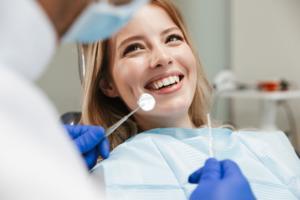![]() EXPERT
EXPERT
Jimmy Kayastha
Oral and Maxillofacial Surgeon
- Charlotte, NC
- Nova Southeastern University
- Accepting new patients
Artificial Intelligence in Oral Healthcare
The rise of artificial intelligence (AI) is reshaping various sectors, with healthcare at the forefront. Advanced language models such as ChatGPT-4 and BARD, proficient in generating...
Tech's Limitations in Healthcare
A recent encounter with a patient presented a poignant example of the challenges posed by the influx of online medical information. The patient arrived with concerns stemming...
The Sensory Deficits of Wearing Masks
Since the onset of the COVID-19 epidemic, life has been peculiar. The social, political, financial, and emotional tolls have been overwhelming. Despite being back out in society...
Oral Manifestations of COVID-19
The COVID-19 pandemic has brought unprecedented challenges for health authorities worldwide. The way of contagion through direct contact has facilitated the rapid spread worldwide....
Oral Cancer: Support, Advocacy, Research and Hope
You are a 'survivor' from the day that you are diagnosed. The word, 'survivor' isn't just a title, it’s an attitude. During the course of my career, I have met far too many patients...
Building a Fairer, Healthier World
The day my mother was diagnosed with advanced cancer was the day I began my long run as a patient. The unwelcome news upended my life and sucked all my energies into an immediate...
Closing the Chasm between Medicine and Dentistry
Since the beginning of modern healthcare, medicine and dentistry have existed as separate healthcare domains. The systemic separation began a century ago, and healthcare policy...
What is the fastest way to heal a broken jaw?
• If your doctor prescribed antibiotics, take them as directed. Do not stop taking them just because you feel better. You need to take the full course of antibiotics.
• Keep a small pair of wire cutters with you for emergencies. Use them to cut the wires if you choke, vomit, or have trouble breathing.
• Put ice or a cold pack on your jaw for 10 to 20 minutes at a time. Try to do this every 1 to 2 hours for the next 3 days or until the swelling goes down. Put a thin cloth between the ice and your skin.
• You may be able to chew a soft diet, or you may have to drink your meals through a straw.
• Avoid any activity that might re-injure your jaw.
• Call 911 anytime you think you may need emergency care. Call your doctor or nurse call line now or seek immediate medical care if:
• You have signs of infection, such as:
o Increased pain, swelling, warmth, or redness.
o Red streaks leading from the area.
o Pus draining from the area.
o A fever.
How can I make my mouth heal faster after oral surgery?
Use a cold compress. Take pain medication. Practice good oral hygiene.
Do they put you to sleep for oral cyst surgery?
Cyst removal is performed routinely under local anesthesia. You may also choose to be sedated for the entire procedure to ensure an anxiety-free experience.
Lower jaw jolts?
The basic explanation is that there has been damage to, or interference with, your facial nerves or muscles. There are many conditions that can cause this damage and make your jaw muscles lock up, and it can sometimes take a little detective work on the part of your medical provider to pin down the exact cause.
Can you fix an open bite without jaw surgery?
There are two types: Anterior and Posterior. (Front teeth vs. Back teeth).
For Anterior open bite, again there are two categories:
1. Dental - For children, habit-breaking appliances coupled with myofunctional appliances. Braces can also help with severe proclination of upper front teeth. For adults, fixed orthodontics (braces) are an option.
2. Skeletal - If it is skeletal and it is severe, you may need surgery. Sometimes, if the skeletal defects are minimal, some fixed orthodontics can be given.
For Posterior open bite, the treatment is -
a. Habit breaking for tongue thrusting habit.
b. Crowns to enhance the height of natural dentition.
So yes, if the defect is not skeletal, fixed orthodontics (braces) can help. You might also want to consider cosmetic dental treatment like veneers and crowns.











